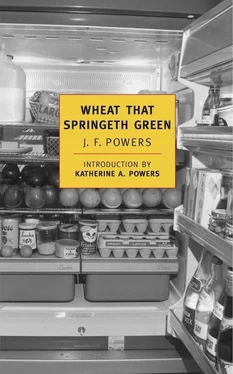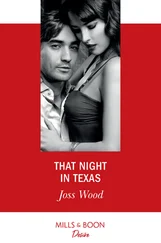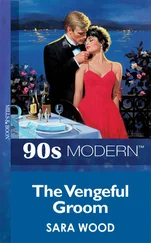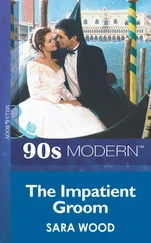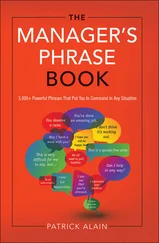J. Powers - Wheat That Springeth Green
Здесь есть возможность читать онлайн «J. Powers - Wheat That Springeth Green» весь текст электронной книги совершенно бесплатно (целиком полную версию без сокращений). В некоторых случаях можно слушать аудио, скачать через торрент в формате fb2 и присутствует краткое содержание. Год выпуска: 2000, Издательство: NYRB Classics, Жанр: Современная проза, на английском языке. Описание произведения, (предисловие) а так же отзывы посетителей доступны на портале библиотеки ЛибКат.
- Название:Wheat That Springeth Green
- Автор:
- Издательство:NYRB Classics
- Жанр:
- Год:2000
- ISBN:нет данных
- Рейтинг книги:5 / 5. Голосов: 1
-
Избранное:Добавить в избранное
- Отзывы:
-
Ваша оценка:
- 100
- 1
- 2
- 3
- 4
- 5
Wheat That Springeth Green: краткое содержание, описание и аннотация
Предлагаем к чтению аннотацию, описание, краткое содержание или предисловие (зависит от того, что написал сам автор книги «Wheat That Springeth Green»). Если вы не нашли необходимую информацию о книге — напишите в комментариях, мы постараемся отыскать её.
Wheat That Springeth Green — читать онлайн бесплатно полную книгу (весь текст) целиком
Ниже представлен текст книги, разбитый по страницам. Система сохранения места последней прочитанной страницы, позволяет с удобством читать онлайн бесплатно книгу «Wheat That Springeth Green», без необходимости каждый раз заново искать на чём Вы остановились. Поставьте закладку, и сможете в любой момент перейти на страницу, на которой закончили чтение.
Интервал:
Закладка:
He got on with the job, but not in unseemly haste, and when he finished, he’d leave the church, but not in unseemly haste, not breaking into a run, though headed for the kitchen, the refrigerator. He’d pick up a tray of ice and carry it through the study (“Well, well”), into the bathroom, his bar, where the hard stuff was kept in the same drawer with the shoe polish (and thus kept in its place). He’d make a couple of drinks — not undoing all he’d done that afternoon to deny himself but striking a balance. (You could laugh at the old via media, but it was still the best way — it had to be watched, though, or you’d end up in a rut.) After another drink or two, after their very tasty seafood dinner, he’d drive the monk to his bus. “See you Saturday, Father.” “Okey-doke, Joe.” And that would be it for another week.
That evening, after a surprise visit—“Just a social call, we live in Silverstream, you know”—from Earl, his wife, and two of their children, Joe washed the glasses in which he’d served them all 7UP, finished the Sunday paper, read the Catholic Worker (and wrote it a check), switched the TV on and off at intervals, had a drink, two, touched it up once, twice — and all the time the likelihood that the curate would soon return got likelier and likelier.
Joe still hadn’t written off the evening when, at eighteen after eleven, the curate returned. The door to the study was open, and the pastor was clearly visible within, in his BarcaLounger, but the curate passed by without a word of greeting or explanation and could soon be heard taking a shower. When the drumming stopped, the pastor tried to get up, only to find his left foot asleep. While waiting for service to be resumed, he changed his mind about inviting the curate in for a nightcap. It was the curate’s move. The hour, though late, was not too late, and the pastor’s door was open.
To judge by the silence, though, the curate had gone to bed.
The pastor got up, shut his door, made himself a nightcap, switched on the TV, returned to his BarcaLounger.
In some respects, with the pastor sitting alone, watching an old movie, it was like all those nights he’d known before he had a curate.
In one respect, though, it would be different: the pastor, not wishing to be heard foraging in the kitchen, would go to bed hungry.
13. MONDAY
JOE HAD THE eight o’clock Mass, the curate the nine, and so they had breakfast at different times, Joe then going down to his office, the curate where?
Joe gave him a call. “Good morning. The time is ten past ten, the temperature is seventy-one, and the sun is shining.”
“That you, Father?”
“That’s right. Hope I didn’t disturb you.”
“No, I was just reading my office.”
“Read it in your office, Father, or in church. That’s what I do.”
“Where you calling from, Father?”
“I’m calling from my office. You should be in yours.”
“What’s up?”—no immediate response—“I’ll be right down.”
Joe got a nasty shock, but concealed it, when the curate appeared before him in overalls and T-shirt, saying, “What’s up?”
“What d’ya mean ‘What’s up?’? We open at nine-thirty.”
“We do?”
“As a rule. There’ll be days when you have a wedding or funeral, but as a rule you should be in your office by ten when you have the nine o’clock Mass, by nine-thirty when you have the eight. I was down here at nine today, but we open at nine- thirty.”
“For what?” said the curate.
Joe looked at him hard. “You thought your office was just a place to see people in?”
“More or less.”
“Well, it’s not, Father. That’ll become clear to you as time goes on. Meanwhile, I don’t want to see you got up like that.”
“Around the house, I thought…”
“No good, Father. No overalls.”
“Overalls? You mean jeans.”
Joe did, but wouldn’t use the word, hating the phony-cozy sound of it. “Look, Father. You may not be able to brighten the corner where you are, but why crumb it up? Why go out of your way to look bad? Everybody’s doing it, sure, but you’re not everybody, Father. You’re not an old cowhand and you’re not the boy next door. You’re a priest, and that means, among other things, you dress like one. If you’re traveling, say, and don’t want to be bothered by people, that’s different. But otherwise people have a right to know what you are. Don’t be a snake in the grass, Father. Your feet sweat, or what?”
The curate, looking down at his feet, shook his head.
“O.K.,” Joe said. “Sandals around the house, with a cassock, or with trousers and a shirt (either white or black), but not with a suit. I see somebody in a suit wearing sandals — and I don’t only mean a priest — I mean any body — I want to throw up. Black socks, Father.”
“Black?”
“Black. I hate these piddling little departures from the rule. I can understand a man leaving the priesthood, but wearing colored socks, including gray, no. No good.”
“Breaks the monotony.”
To show what he thought of that , Joe shut his eyes and hung his head, simulating death, then snapped out of it. “You wouldn’t say that, Father, if you knew anything about monotony. It’s not that easy. But that’s not the point. The point is, Why ruin a perfect color combination? Yes, perfect. Any man looks better in black and white. I don’t say good; I say better. That’s why evening dress is, or was, black and white. Actually, we’re lucky that way, as priests. Look at the Buddhists.”
The curate shook his head in, as seen on television, dismay.
Joe reread the message on the curate’s chest (THOU SHALT NOT KILL, BEND, FOLD, OR MUTILATE), and said, “I’ve never worn T-shirts, even plain ones, but I have nothing against them as underwear. That’s all they were ever meant to be, you know. Now, for Christ’s sake — I mean that literally, Father — go up and change and come down again.”
The curate came down in a cassock, but was still wearing the heavy gray socks with red toes and heels, which Joe said nothing about, however, hoping thus to give the young man pause, time to see where taking a stand against his pastor, if that was what he thought he was doing, had got him — out on a limb.
“Let’s go over to your house,” Joe said.
In the curate’s office, about which the curate had said nothing on his first visit, on Saturday, and still said nothing, Joe went over to a cabinet and threw open its doors. “We’re all right at the moment, Father, but it’ll be one of your jobs to order supplies.” Joe showed him the check writer. “Have to introduce you to the people at the bank”—assuming I ever find out your name—“and you can leave a specimen of your signature.” Joe moved away from the cabinet, leaving the doors open, saying, “Oh, close those doors, Father,” to involve him, and went over to the bank of files. He opened and closed a drawer, another, another, enjoying the smooth, gliding action, the bright colored tabs (new) on the folders. “Every family or household has a file. Parishioner comes in, you don’t have to start from scratch — you know the wife’s first name, how many kids, their names, and so on.” Joe opened another drawer and, unable to control himself, enjoying the action so much, closed it, having meant to leave it open for the curate to close. “Parish correspondence. Strictly chronological”—Joe decided not to mention the stuff that came from Toohey undated, or dated, say, “Thursday.” Joe went over to the bookcase, reached down to the bottom shelf, and slapped a big canvas-bound volume. “Parish register. Really something when I came here. Vital statistics on scraps of paper stuck inside, never entered.” Joe handed a loose-leaf binder to the curate, involving him. “ Index to the parish register. My idea. You don’t have to hunt through the parish register every time somebody wants a baptismal certificate. Have to keep the index up to date, though, or it’s useless. Be one of your jobs.” The curate — involved? — put the index back in the bookcase. Joe, going over to the desk, caught himself before he sat down at it from force of habit, and went to one of the lemon chairs formerly in his office. “Sit down, Father. No, at the desk.” After the curate had done this, Joe said, “You don’t say much, Father.”
Читать дальшеИнтервал:
Закладка:
Похожие книги на «Wheat That Springeth Green»
Представляем Вашему вниманию похожие книги на «Wheat That Springeth Green» списком для выбора. Мы отобрали схожую по названию и смыслу литературу в надежде предоставить читателям больше вариантов отыскать новые, интересные, ещё непрочитанные произведения.
Обсуждение, отзывы о книге «Wheat That Springeth Green» и просто собственные мнения читателей. Оставьте ваши комментарии, напишите, что Вы думаете о произведении, его смысле или главных героях. Укажите что конкретно понравилось, а что нет, и почему Вы так считаете.
